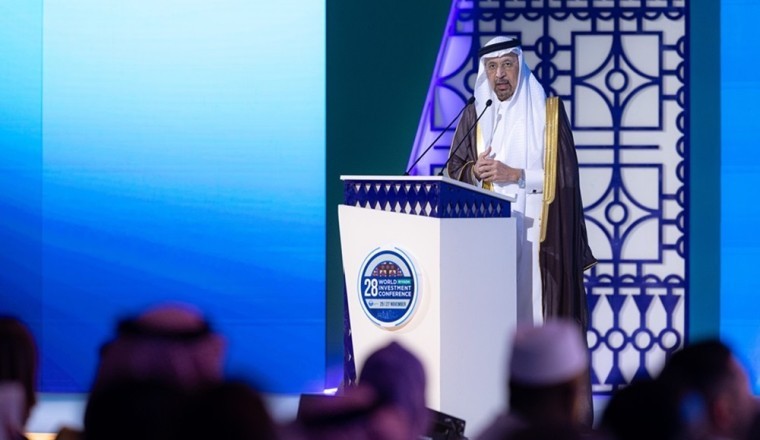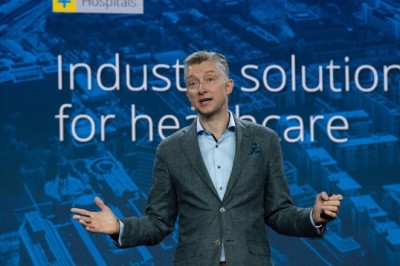
Inaugural sessions emphasize digital transformation, sustainability, and Saudi Arabia’s leadership in global investment opportunities.
Invest Saudi and The World Association of Investment Promotion Agencies (WAIPA) officially launched the 28th World Investment Conference (WIC) today in Riyadh. With an overarching theme of ‘Harnessing Digital Transformation and Sustainable Growth: Scaling Investment Opportunities’, the first day brought together more than 2,000 attendees from 130 countries, including 30 ministers, to explore key strategies for overcoming global investment challenges and unlocking opportunities for the future.
H.E. Khalid A. Al-Falih, Saudi Minister of Investment, opened the event with an insightful keynote address, highlighting Saudi Arabia’s transformation under Vision 2030 and its emergence as a global investment hub. He identified the critical global trends shaping investment, such as the rise of green and blue economies, the impact of new technologies, the reconfiguration of global supply chains, and demographic shifts.
Showcasing Saudi Arabia’s development, H.E. Khalid A. Al-Falih told the audience: “Our GDP has grown by 70% since the launch of Vision 2030 to $1.1 trillion, with half of this attributed to non-oil economic activities. Foreign direct investment (FDI) flows have tripled compared to pre-Vision levels, and registered international investors are 10 times what they were.”
Nivruti Rai, Managing Director and CEO of Invest India and WAIPA President, also addressed the audience, highlighting the importance of collaborative global efforts to reshape economics and drive sustainable growth.
First day panels ranged from discussions on the evolving role of emerging economies to strategies for fostering global trade and investment. Topics included the increasing importance of FDI in driving economic transformation, the alignment of industrial policies with investment promotion, and transformative innovations in climate action.
H.E. Faisal F. Alibrahim, Saudi Minister of Economy and Planning, joined H.E. Eng. Hassan El-Khatib, Minister of Investment and Foreign Trade, Egypt, and H.E. Samir Abdelhafidh, Minister of Economy and Planning, Tunisia, in a panel discussing how emerging economies, such as Saudi Arabia, are redefining the role of investment promotion agencies (IPAs) and creating new opportunities for FDI amidst challenges like geopolitical shifts and sustainability goals.
“Saudi Arabia is today the global growth platform, actually the growth platform if you look at how the global economy is evolving. And we’ve been lucky enough to prove the power of diversification over the last few years.” H.E. Alibrahim said.
The conference also featured a masterclass on ‘Investor Services 2.0’ by the World Bank, exploring AI-driven analytics and VR site visits, along with matchmaking sessions that connected investors with SMEs and government representatives.
H.E. Khalid A. Al-Falih, Saudi Minister of Investment also brought up the topic of supply chain resilience ahead of the Global Supply Chain Resilience Event (GSCRI) being held on the sidelines WIC tomorrow. In his opening speech, he stated, “One trend is the steady reconfiguration of global supply chains, with decentralization creating hubs in emerging regions that offer new opportunities for investment in infrastructure and production capacity. We have observed that as investors look to enhance the stability and resilience of supply chains, new economic clusters are coalescing around resources, energy, and demography.”
Minister Al-Falih will give the opening remarks at the GSCRI event tomorrow along with H.E. Bandar Alkhorayef, Minister of Industry and Mineral Resources, Saudi Arabia.
The second day will also see sessions on technology innovation, industrial transformation, and sustainable partnerships.



















Facebook Conversations
Disqus Conversations